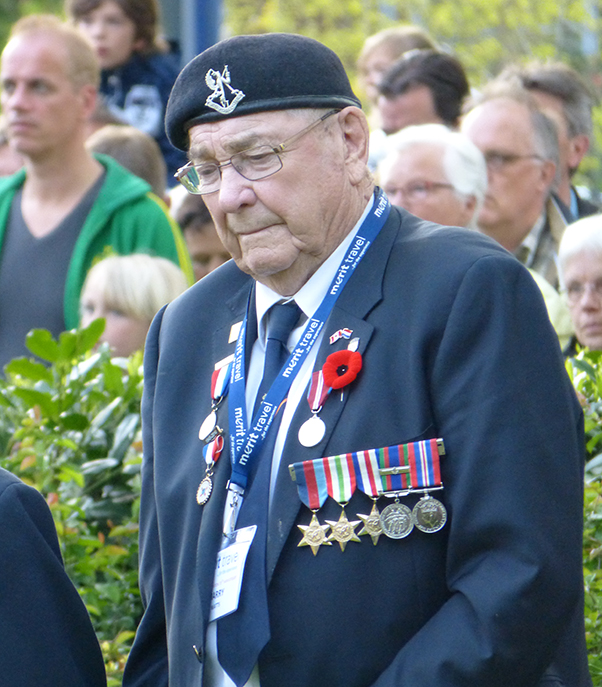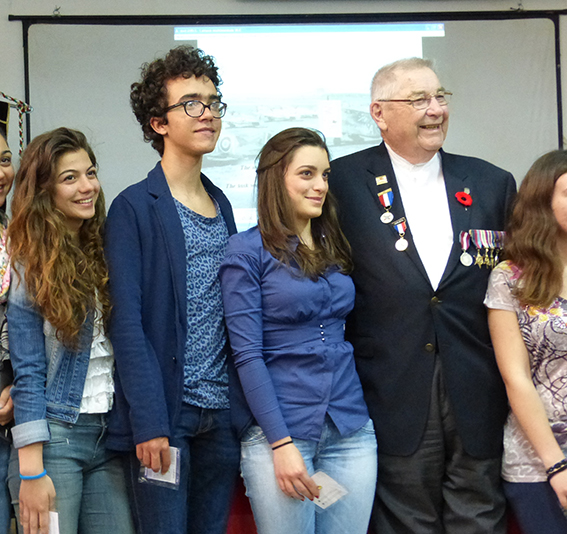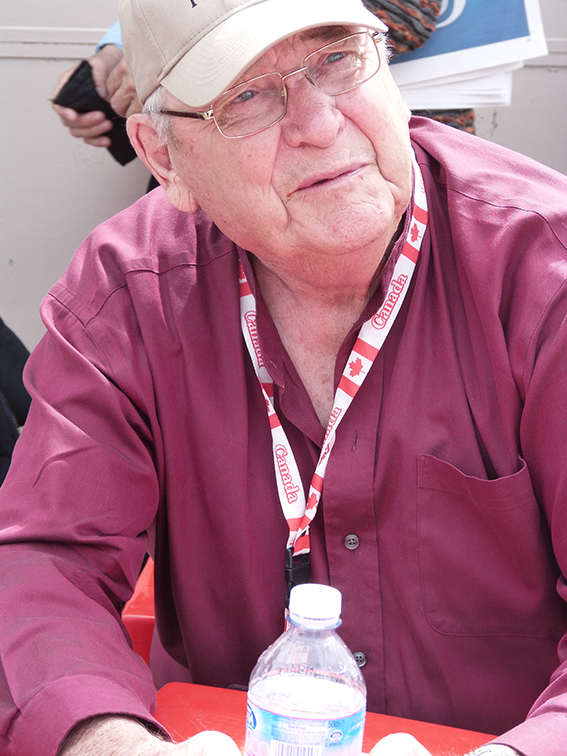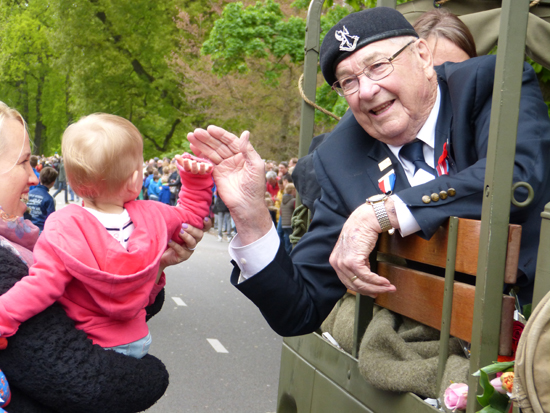
I didn’t expect to see him that day. I had a million other things on my mind. But then, in the middle of our Sam Sharpe statue unveiling, Harry Watts came up to say hello. I thought, why had Harry, a veteran of the Second World War – a guy who lived in Kitchener – why had he come to Uxbridge for the unveiling of a statue to a First World War soldier?
“I had to come,” he said. “I had to show my support for a man who gave so much to his troops and then paid so much with his shell shock.”
Actually, I shouldn’t have been surprised at all. Harry served as a dispatch rider for four years in the Second World War. He enlisted in 1942, got to England in the spring of 1943, then landed with the 5th Canadian Division in Naples, Italy. For 10 months he rode his Norton motorcycle back and forth across Italy delivering top-secret orders and soldiers’ pay to the Canadians fighting in Ortona.
Then, he and the 1st Canadian Division were secretly transferred to join the liberation of Holland. He volunteered for the Pacific war, but returned to Canada in time to learn that the Japanese had surrendered and in time for his 29th birthday at home in Ontario.
My friend Harry Watts died on Sunday. He was 96.

Nobody deserved as much praise for his service to Canada as Harry Watts, but nobody was a modest. In 2013, when he joined a tour I led to Italy, retracing his trek in the first Allied invasion of Europe, he spoke to an auditorium of high school students in Pachino, Sicily, where the Canadians landed in July 1943. One student asked why he’d become a dispatch rider.
“Because I was lazy. I was like a king seated on my throne, my motorcycle,” he said and added, “I carried messages that were too top-secret to be delivered by telephone or telegraph.”
Around Christmas 1943, when the Canadian Army pushed its way to a showdown with German paratroops at Ortona, on the Adriatic coast, Watts and his Norton became a lifeline on two wheels. Every other day, Harry motored his way along dirt paths, by bombed out towns, through mountain passes, in all kinds of inclement weather. He routinely left Naples at 8 o’clock in the morning, travelled 250 kilometres northeast, and arrived at Ortona late in the afternoon with his military messages.
But Harry was a much a humanitarian as he was a warrior. He told me on that Italian trip that he was billeted in an Italian village where civilian children had nothing; their clothes in tatters, nothing on their feet. Harry approached headquarters about reprocessing discarded jeep tires.
“We cut them up in small pieces on a band saw,” Watts said, “and soon all the kids had something on their feet.”

In 2015, Harry Watts and I were back in Europe on another tour, this time, we were retracing the path that Harry and the Canadian Army blazed liberating Holland. During a stop at the Dutch town of Baarn, Harry was asked to address the assembly commemorating the restoration of freedom to the Netherlands. Again, this modest liberator tried to simplify things.
“We were volunteers,” Harry said. “Because a lot of our parents and grandparents had come from Europe, we came here to, in a way, liberate our families.”
When the speeches, anthems and wreath-laying concluded, the townspeople mobbed Watts. Many made gifts of their tulip bouquets. Others just hugged and kissed them. But two young women just wanted their picture taken with Harry, and then they disappeared into the throng of well-wishers. Sometime later, back home in Kitchener, Harry received a letter.
“Dear Mr. Watts,” the letter began. “I have been searching for so long to find the man in the picture we took. And finally, after four months, I have your name.” Her name was Monica Visser, of Herkendam, Holland.
“Maybe you are asking yourself right now why I wanted so badly to talk with you. I don’t know, but I saw something in your eyes. I knew you were a special man, Sir. I thanked God that I met you. You are a hero!”

Later that trip, Harry sat in a jeep in a parade through Holland’s palace city, Apeldoorn. Thousands of Dutch civilians mobbed Harry’s jeep and showered him with flowers. Many women ran up, hugged and kissed him. Others just help up their small children so Harry could touch them. I know. I ran alongside taking pictures. By the end of the parade Harry was knee-deep in flowers and overcome with emotion.
When I heard of Harry’s death this week, I called his daughter. She said, “Harry died of heart failure.”
Of course, he did. After 96 years, that loving, caring, fighting, Canadian heart had given its all in the service of his country. Who could ask for more?